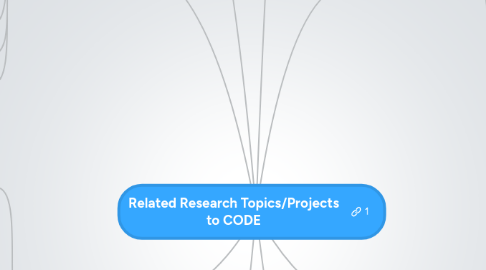
1. Research Metadata Standards
1.1. Statistical Data and Metadata Exchange
1.2. RDF Cube Language
1.3. Statistical Core Vocabulary
2. Data Sources
2.1. Research Data Sources
2.1.1. The World Data Center for Geophysics & Marine Geology (WDC-GMG)
2.1.2. Biotechnology
2.1.2.1. Fantom Project (Genes)
2.1.2.2. BMC
2.1.2.2.1. Journal provides XML Dumps
2.1.2.3. PMC
2.1.2.3.1. Dump of Open Access Articles plus XML
2.1.3. List of Research DAta Repostiories
2.1.3.1. US Agricultural Census Data in PDF
2.1.3.2. World Bank Client Change Portal
2.2. Open Data Data Sources
2.2.1. Factor Forge
2.2.2. World Bank Data
2.2.3. OpenCorporates
2.2.4. Wikidata
2.2.5. Food and Agricultural Organisation
2.3. Capturing Technologies
2.3.1. Software Monitoring
2.3.1.1. Kiecker (Kiel)
2.3.2. Benchmarking
2.3.2.1. Big Data Benchmarking Community
3. Linked Open Data
3.1. LOD2
3.1.1. WP 5 - Adaptive Linked Data Visualization, Browsing and Authoring
3.1.1.1. Slides
3.2. Zemanta GoogleGRefine
3.2.1. Reconcilation of Tables
3.2.2. Table to RDF Linking
3.2.3. add semantic columns
3.3. http://lld.ischool.uw.edu/wp/
3.4. http://publicdata.eu/
3.5. http://mashpoint.net/
3.5.1. Mash Up different information pools
3.6. http://stats.270a.info/
3.6.1. OECD and Worldbank Statistics as Data Cube
4. Data Mining in the Cloud
4.1. BigMl.com
4.1.1. Data Mining Services
4.2. Yottamine
4.2.1. Elastic SVM
5. Benchmarking Efforts
5.1. SPEC Research
5.2. TIRA – Testbed for Information Retrieval
5.2.1. University of Weimar
5.2.1.1. Benno Stein
5.2.2. Information Retrieval Testbeds
5.3. TPC
5.3.1. TPC-E via XML available
5.4. evaluatIR.org
5.4.1. Would the data be available?
5.5. Kaggel
5.5.1. Machine Learning Competition
6. Research Data Management
6.1. LinkedScience.org
6.1.1. Focus on Geospatial Data
6.2. MAWIFO
6.2.1. Kiel University
6.2.1.1. Willhelm Hasselbring
6.2.2. ZBW
6.2.2.1. Daniel Bahls
6.2.2.2. Klaus Tochermann
6.2.3. Research Data in Economics
6.3. PubFlow
6.3.1. Creating Citeable Workflows
6.3.2. Kiel University
6.3.2.1. Willhelm Hasselbring
6.4. VIVO
6.4.1. Utilzies Semantic Web Technologies
6.4.2. Enablign collaboration and discovery among scientists
6.4.3. Cornell University (Main Institution)
6.5. FigShare
6.5.1. Publish, Share Visualise your Research data
6.6. Reproducibility Initative
6.6.1. Validation service for research data
6.6.2. figshare as backend
6.6.3. published in plos collection
6.7. Biosharing
6.7.1. Interoperability, policies and sharing of research results in the Biomedical Domain
6.8. DataUp
6.8.1. Data Curation with Excel
6.9. SciDB
6.9.1. LArge Scale Infrastructure
6.10. Nature Encode
6.11. DataUp
6.12. DataVerse
6.13. OpenScienceDataCloud
6.14. DAta Marketplaces
6.14.1. http://www.compose-project.eu/
6.15. Data2Semantics
6.15.1. LinkedTab
6.15.2. SPARQL Wizard
6.16. LinkedScience Data
7. Scientific Paper Mining
7.1. Sapentia
7.1.1. Semantic Annotations of Research Papers
7.1.2. Biotech Domain
7.1.3. Automatic recognition of conceptualisation zones in scientific articles and two life science applications
7.2. DocumentCloud
7.2.1. Uses OpenCalais
7.2.2. share annotations
7.3. http://www.isgtw.org/feature/enabling-knowledge-creation-data-driven-science
7.4. Data2Discovery tools
8. Visualisation
8.1. EEA Data and Maps
8.1.1. Developed by eaudeweb.ro
8.1.2. Uses RDF as Data Backend
8.1.3. From SPARQL to Visualisations
8.1.4. Visualisation of Enrivonmental Data
8.2. DocEar
8.2.1. MindMaps for managing Annotations
8.2.2. Product, not a project
8.3. SQVizler
8.3.1. Create Charts from SPARQL Queries
8.4. Ap.ORG
8.4.1. Document Visualisation
8.5. https://annotary.com/
8.5.1. Annotations in the Web
